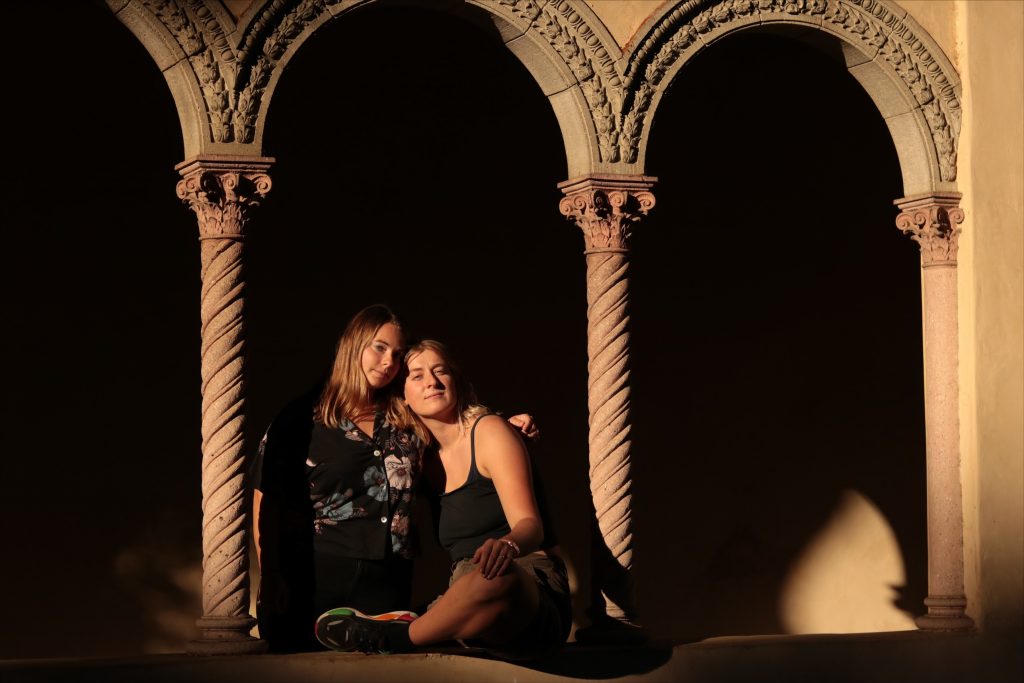Ellen Hu ’24
Copy Editor
After Natasha Vhugen ’22 finished the last few weeks of her junior year over Zoom, she knew that spending another year online was not how she wanted to experience her senior year. She decided to take a leave of absence for the following fall semester.
“It was way more important that I give myself the chance at having one last year of in-person stuff instead of just powering through to graduate when I was, quote-on-quote, supposed to graduate,” she said.
Vhugen and a handful of other students who decided to defer are unofficially referred to as super seniors: students who will be attending Scripps College for more than four years. This is often due to the students’ choice to take a leave of absence, a choice that became increasingly common during the COVID-19 pandemic.
Vhugen’s decision was one that took time but was supported by her friends. Many of her friends across the Claremont Colleges also decided to take the 2020-2021 school year off.
While Vhugen was the first of her friends to make the decision, her friends resonated with her reason for taking a leave of absence: online classes inhibited a sense of community. “All of us were really remembering how much joy we get out of the connection with other people and that couldn’t translate to Zoom,” she said.
As a result, her transition back to campus has been fairly smooth. “I am very fortunate in that most of my friends are still here so I don’t feel as if I was without my community,” she said.
This is not the case for all super seniors. Elena Lev ’22 had a more difficult time transitioning back onto campus. She left campus as a sophomore to study abroad in Spain in the spring of 2020 when campus shut down.
“I was only on campus with the current super seniors and current seniors,” she said. “It’s really strange and really isolating to not know anyone around campus.”
Lev decided to take a leave of absence to enjoy Spain for one more semester, although her plans were cut short when the COVID-19 pandemic hit. Upon return, it was the lack of an in-person community that cemented her final decision to take another semester off.
However, upon return, this sense of lacking a Scripps community has made her transition difficult. “The most important thing for me is the social community, and not knowing people or having that community has been really challenging,” Lev said.
Lev believes that this is in-part due to Scripps’ lack of “facilitating community building.”
“It just felt really disorienting to come back to campus and have there be nothing to really facilitate the transition,” she said. “I wish there really had been because I think it would have helped ground me in the space.”
Still, the initial sense of isolation has not kept Lev from finding ways to make Scripps feel like her own. She’s enjoyed the small moments when she has been able to befriend underclassmen and build a new support system.
“I’ve been slowly getting to know people or just meeting people in small increments,” she said. “That has felt really helpful because just knowing that I know people around campus makes me feel like this is more my space still, or a space that I belong in.”
These interactions between upper and underclassmen in getting oriented to campus is something that Vhugen has truly enjoyed seeing. Due to Scripps College’s shutdown in response to COVID-19 in March of 2020, Vhugen and Lev are among about half of the student population who have experienced in-person campus life before the fall 2021 semester.
“I just feel like I know so much more about campus than most people,” Vhugen said. “Everything makes sense to me here because I’ve known it all and so it’s kind of funny to realize that others don’t know, like, the hours of the Hub or stuff like that.”
However, just because they are better acquainted with the campus does not mean that super seniors haven’t had more to learn. When she returned to campus and began building her social circles, Lev found another super senior who she did not previously know.
“We technically have been around each other for two years and I had never met her before,” Lev said. “It was a little disorienting.”
While there have been challenges associated with transitioning back onto campus, Vhugen acknowledges that she is privileged in having the opportunity to take a leave of absence. She expressed how many of her classmates chose to continue through online classes because it “was financially far more accessible”.
In the end, both Lev and Vhugen agree that taking a leave of absence was the right decision for them. “It was definitely the right call to not do school and I’m very glad that I made that decision,” Vhugen said.
Image Source: Ellen Hu ’24



